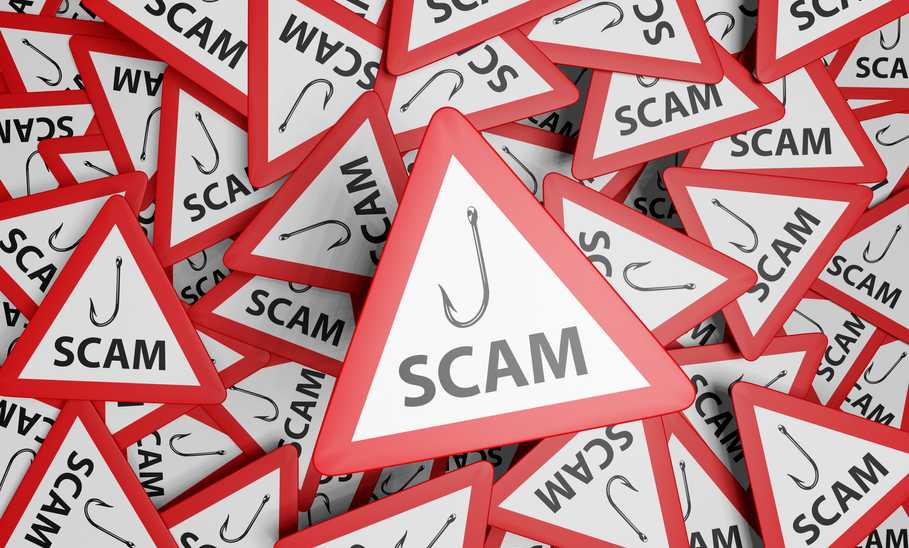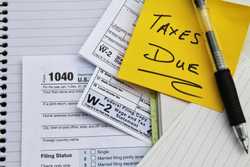9 Cash App Scams You Should Know Of

Our evaluations and opinions are not influenced by our advertising relationships, but we may earn a commission from our partners’ links. This content is created by TIME Stamped, under TIME’s direction and produced in accordance with TIME’s editorial guidelines and overseen by TIME’s editorial staff. Learn more about it.
Cash App makes it easy to send payments or get paid virtually instantly. But as with all mobile apps, it's important to be aware of potential scams. Knowing how to spot a Cash App scam—and some of the most common forms they take—can help keep your money safe.
Cash App scams can take different forms but they all have the same end goal of tricking you into handing over money. Some scams have been making the rounds across mobile payment apps in different forms for years, while others are relatively recent inventions.
If you're a Cash App user or are planning to create a free account, here are some of the most common and damaging scams to be aware of.
One of the most common Cash App scams involves flipping money. A scammer will reach out and tell you that if you send a certain amount of money, they can double it or triple it for you.
Sounds too good to be true, right? And it is, but people continue to fall for this scam. They send money, expecting to get it all back and then some, only to end up losing the funds they've sent.
These scams involve someone telling you that you've won a prize but you first need to pay a fee to claim. This is similar to the Nigerian prince phishing emails that have been tricking people out of money for decades. As with cash flipping, you send the claim fee to the scammer, expecting to get a larger payout in return. But there's no prize forthcoming because you haven't won anything.
Another sneaky scam involves someone sending money to your Cash App, then claiming the payment was accidental. They may give you a tearful story about how they desperately need that money back so they can pay bills or cover an emergency expense.
You send the funds back in good faith but the scammer reports the transaction to their bank. They essentially double-dip by getting reimbursement from the bank and having you send the original payment back to them.
A variation on this scam involves the use of stolen credit cards to send payments. The scammer uses a stolen card to send a payment to a random person on Cash App. They then contact the recipient and ask them to send the "accidental" payment back to their Cash App account.
Cash App sometimes runs legitimate giveaways, in which they give cash to lucky users who are chosen at random. While that's great if you win, it's a prime opportunity for a scammer to set up a fake giveaway to lure in victims.
Here's an easy way to spot those scams: Look for a fee requirement.
Cash App will never ask you to pay a fee to enter a giveaway. If you are tagged in a giveaway and you're expected to pay a fee to enter, it's most likely a scam.
If you're using Cash App to collect payments for things you're selling online, that could make you a prime target for a scam. These scams usually work by someone claiming to have sent the payment to you for whatever it is they purchased through Cash App. They'll say they never got the item and demand that you issue a refund through Cash App. If you're not careful about checking your sales records, you could easily fall victim to this scam and issue a refund for a purchase that was never made.
Fake deposit scams happen when you send a deposit for goods or services to someone on Cash App, only to find out that whatever it is you're paying for doesn't exist.
For example, let’s say you're in the market to buy a puppy and you come across someone selling a litter on Facebook Marketplace. They ask for a $500 deposit payable via Cash App, which you happily send after picking out your pup from a photo. You follow up to schedule a date and time to collect your new furry friend but, lo and behold, the scammer has disappeared with your cash and there were never any puppies for sale.
It's not just puppies. You may encounter scammers who are supposedly selling dirt bikes or ATVs, or collecting rental deposits for homes among many other hoaxes. If someone you want to buy something from refuses to collect a deposit in person, that could be a big red flag that they're a scammer.
Catfishing scams most often involve someone who claims to be seeking a romantic connection. They might woo you online for a few weeks or months, then say they want to meet. But of course, there's something keeping them from coming to see you in person.
Maybe their car has broken down and they don't have money to fix it. Or they can't afford to pay for a cross-country flight.
Since you've made what you think is a genuine connection, you send them money to cover their travel costs. But while you're waiting patiently for their arrival, they're plotting how to find their next scam victim.
Some scammers are bold enough to impersonate Cash App support to try and gain access to your money. They may send a message telling you that your account has been hacked and ask you to provide your username and password or PIN number for security purposes.
If you get an email from someone claiming to be from Cash App's support team, don't just take it at face value. Reach out to Cash App support directly through the app to confirm whether the message is legitimate before taking any other action.
Phishing scams attempt to collect your personal or financial information via email, text, or phone call. For example, you may get an email directing you to log into your account through a specific link.
The problem is that those links can include malicious software that's designed to track and steal your personal information. If you get any emails that appear to be from Cash App, your best bet is to verify them by contacting support directly before clicking on any links.
The best way to prevent Cash App scams is to only exchange payments only with people you know. However, there are some other steps you can take to minimize your odds of falling victim to a scam.
Security Lock requires you to enter a PIN when making payments using your Cash App account. You can enable this feature in-app to prevent any unauthorized payments from taking place. Turning on notifications means you'll be notified by Cash App when there's suspicious activity on your account.
If you're sending a payment to someone on Cash App, confirm that they are who they say they are if you're able to do so. You'll also want to double-check to make sure you're sending money to the right person.
Visit their profile and check their $cashtag, which is their unique Cash App ID. If anything feels off, don't send the payment until you can verify that the recipient and the transaction are legitimate.
Cash App's privacy settings allow you to determine whether you want to receive requests for payments. If you decide to leave them on, you can allow requests from everyone or just people on your contact list.
If you're getting repeated requests from people you don't know, you have the option to block them. That will prevent them from sending requests from the blocked $cashtag name.
It should go without saying but it's unwise to share your personal or financial details online or with people you don't know. If someone reaches out claiming to need your date of birth, Social Security number, or bank account number to send a Cash Apppayment that's an obvious sign of a scammer at work.
Generally speaking, Cash App is as safe as any other mobile payment app. You can use it to send payments or receive them faster than you could with a bank account. Cash App also offers other features, including:
That being said, Cash App is safest when you employ it to send and receive money with people you know. If you're using Cash App to engage in money transfers with strangers, you're taking a risk that the person on the other end of the transaction could be a crook.
If you think you've been scammed on Cash App, here's what you can do next:
If you suspect any of your personal or financial information has been compromised, you may also consider freezing your credit reports. That would prevent someone from opening new credit card accounts in your name.
Cash App implements a number of measures to protect customer information, including:
You can take additional steps to protect yourself when using Cash App by choosing a secure password and PIN, and reviewing any notifications or alerts you receive to confirm that transactions are legitimate.
If you have the Cash Card—a debit card that's linked to your Cash App balance—you also get the benefit of Federal Deposit Insurance Corporation (FDIC) insurance. Deposits are insured up to $250,000.
Cash App can make managing your money easier if you need to send money on the go or be paid back by friends and family. Unfortunately, Cash App scams abound and it sometimes takes a keen eye to spot them. Knowing how to protect yourself can help you use Cash App with more confidence and less stress.
Yes. Cash App is a popular target among scammers looking to steal personal information or money from unsuspecting users. Some of the most common Cash App scams involve phishing attempts, fake giveaways, and cash flipping.
If you're scammed on Cash App, you can report the transaction to the customer support team. Cash App investigates claims of fraud but doesn't always guarantee that you'll be able to get your money back. So you're taking a chance when you send money to people on Cash App that you don't know.
Cash Apptakes steps to secure and protect your information should you decide to link your bank account. Linking your bank account can make it easier to deposit funds to your Cash App balance or withdraw them, but you don't need a bank account to use Cash App.
The information presented here is created by TIME Stamped and overseen by TIME editorial staff. To learn more, see our About Us page.



